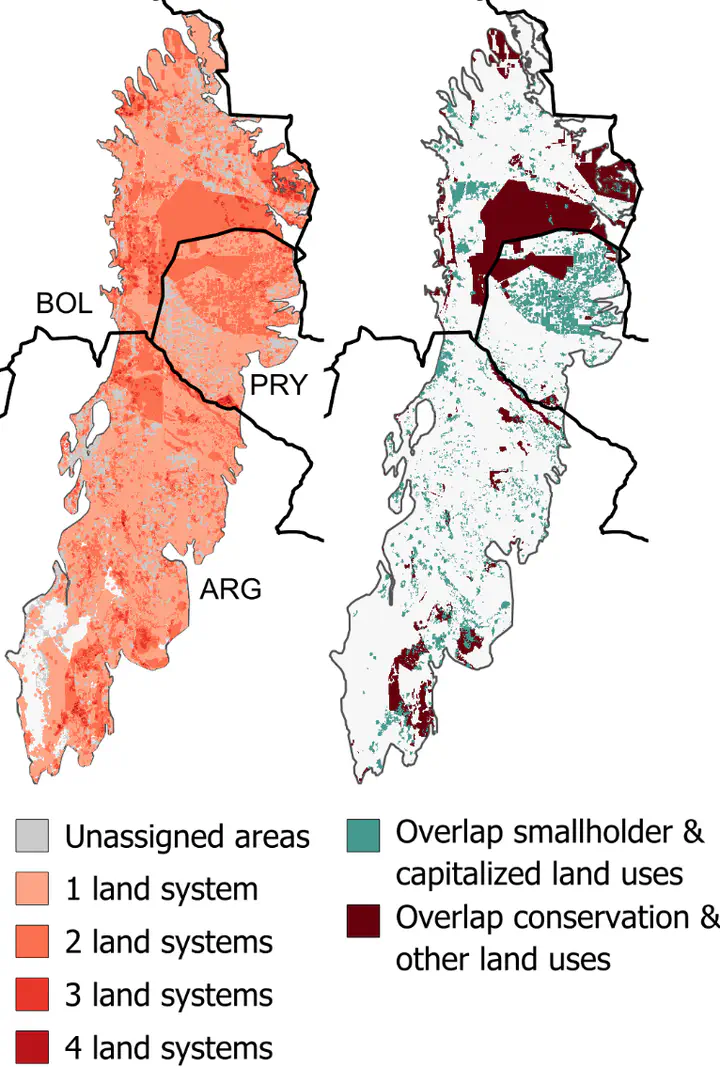Considering land use complexity and overlap is critical for sustainability planning

Considering land use complexity and overlap is critical for sustainability planning - new paper out in OneEarth led by Marie Pratzer
Land use is complex, diverse and often contested, but too commonly oversimplified in sustainability planning, for example by overlooking forest-dwelling communities that are harder to detect in broad-scale data than large-scale agriculture.
We developed an approach to address this risk of oversimplification and underrepresentation by mapping land use as social-ecological systems that can overlap in space.
Our maps for the Dry Chaco and Chiquitano Forests revealed the spatial footprint of actors typically overlooked, such as forest-dwelling smallholders, and highlighted substantial overlaps - particularly between smallholders and agribusinesses, or conservation and other land uses.
Ignoring the diversity of people in sustainability planning can hide competition and conflict, perpetuate injustices but also miss opportunities for co-benefits. Our approach aims to contribute to more effective and equitable mapping efforts and sustainability planning.
Direct link to free access version here.